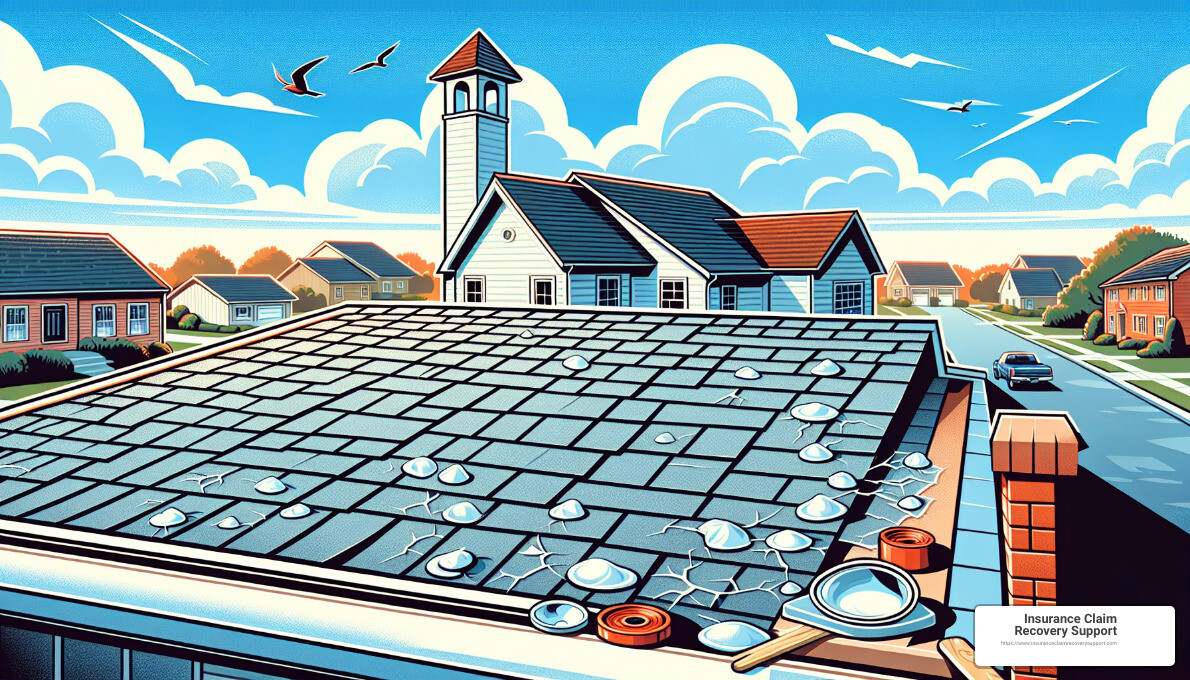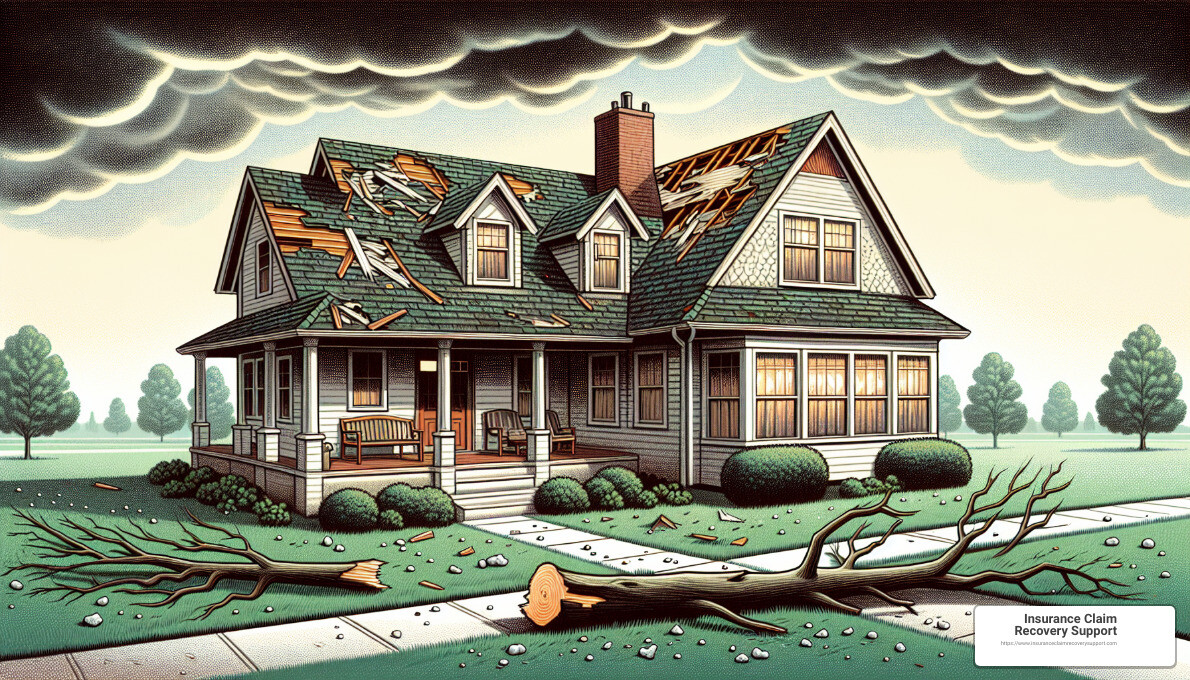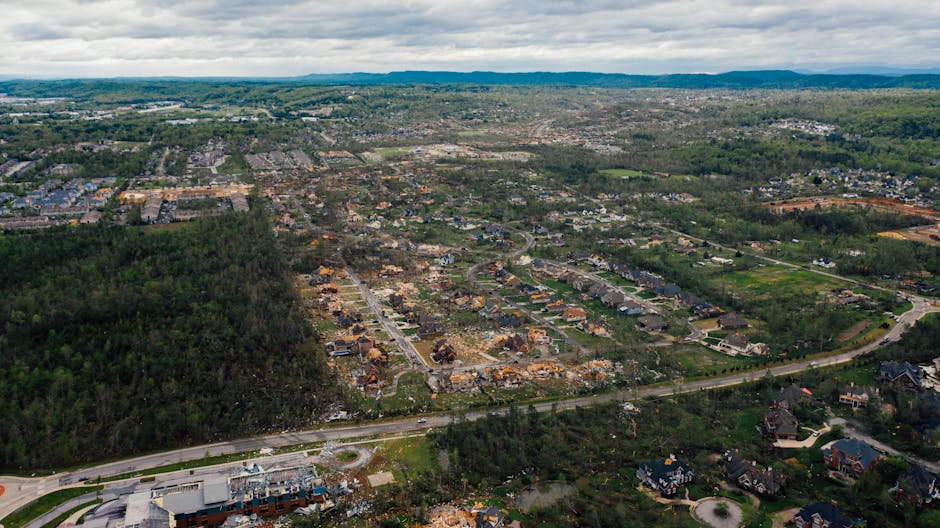In September of 2017, a Texas insurance bill was passed into law which is a major loss for Texas property owners. House Bill 1774 further enables bad faith insurance companies to abuse policyholders deploying unfair claim handling practices that force consumers to sue insurers for underpaying, delaying or wrongfully denying “force of nature” related insurance claims. The bill is an Insurer-friendly attempt to make it harder for Policyholders to bring and litigate force of nature-related property claims.
The media and insurance company lobbyists tout the bill will put an end to frivolous lawsuits surrounding weather disasters such as hailstorms and lower premiums by de-incentivizing trial lawyers gaming the system to get massive attorney’s fees. However, the new law reaches far beyond hail related occurrences, it encompasses other nature-related events including property damage covered for earthquake, wildfire, flood, tornadoes, lightning, hurricane, wind, snowstorm, or rainstorm.
HB 1774 offers little to no real mechanisms to curb lawsuits or hold insurer’s accountable for bad faith insurance claim handling acts which force many policyholders to file lawsuits even after making reasonable efforts to settle a claim with the assistance of a licensed public insurance adjuster. The legislation limits the ability of property owners to hold insurers accountable for underpaid claims or poorly handled claims investigations.
The bill actually cuts penalties for insurers sued for underpaying, delaying or wrongfully denying storm claims, including wind and hail damage, while making it harder for those suing to collect attorneys’ fees.
HB 1774 will force a majority of claim cases into federal court, which typically takes twice as long to receive justice, adds cost and uncertainty for property owners who attempt to legally challenge insurers’ decisions.
Many insurance companies pay property owners as little and as late as possible and drag the process out as long as they can. Texans can expect more delays and denials from insurers and less accountability. The harmful effect of this new law for homeowners, businesses, churches, and schools will be state-wide.
It is also noteworthy that HB 1774 passed in the absence of a Commissioner at the Texas Department of Insurance who regulates the insurance industry and protects consumers. Previous Commissioner of Insurance David Mattax sadly passed away in April of 2017 and to date, Texas Governor Greg Abbott has not appointed a new Commissioner to the Texas Department of Insurance.
Changes to the Texas Insurance Code
The “Hailstorm Bill”, effective September 1, 2017, adds several new provisions to the Texas Insurance Code affecting first-party property insurance claims. Notably, the bill would create a new Chapter 542A for weather-related claims, which changes the requirements for pre-suit notice and inspections, allow for the assumption of agent liability, and limit the number of recoverable attorneys’ fees. Other changes are as follows:
Inspections – Section 542A.004 provides that the person who receives pre-suit notice may provide a written request to inspect the insured property within 30 days after receiving the notice. It further provides that the inspection is to actually occur within 60 days of the date the person receives the pre-suit notice if reasonably possible.
Assumption of Liability – Section 542A.006 allows insurers to elect to assume whatever liability an agent might have to the claimant for the agent’s acts or omissions related to the claim by providing written notice to the claimant. An agent includes any employee, agent, representative, or adjuster acting on behalf of the insurer. Once the insurer assumes the agent’s liability, the claims against the agent must be dismissed with prejudice. By allowing the assumption of an adjuster’s or insurance agent’s liability, the bill aims to make it easier for insurers to remove cases to federal court.
Limitation of Attorneys’ Fees – If the policyholder’s attorney fails to comply with the new pre-suit notice requirements, the policyholder may be prohibited from recovering attorneys’ fees. Additionally, if a claim is tried, the number of recoverable attorneys’ fees will be adjusted. For a claimant to recover all attorneys’ fees, the award must equal at least 80% of the pre-suit damages demand, while a pre-suit demand equaling 20-79% of the damages award allows only for a scaled percentage recovery of attorneys’ fees. Should the award be 20% or less of a claimant’s original demand, the claimant recovers no attorneys’ fees. So now there arguably an incentive for Insurers to pay 20% less on every claim.
Reduced Statutory Penalty Interest – The new law lowers the penalty interest rate that insurers must pay if they fail to pay “timely and fully” from 18% per annum to a rate of adding 5% to the interest rate determined under Section 304.003 of the Finance Code, prejudgment interest which is currently 5%. Thus, the penalty is lowered from 18% to 10%. For claims to which Chapter 542A does not apply, however, the statutory penalty interest rate would still be 18%. That’s right, Texas lawmakers have lowered the penalty on Insurers who abuse the system and take advantage of the consumer from around 18% to 10%.
Rep. Greg Bonnen sponsored the bill passed by the Texas House. Texans for Lawsuit Reform and The Texas Coalition for Affordable Insurance Solutions (TCAIS), which represents major homeowners insurance companies doing business in Texas, praised the passage of HB 1774.









